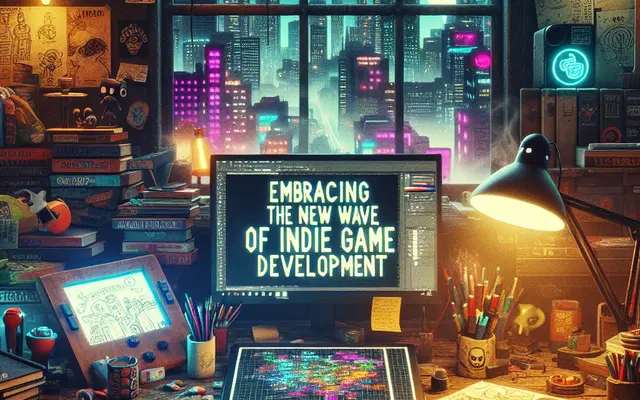Decoding the Artistry of Indie Game Design

Unraveling the Creative Process Behind Indie Game Development
Indie game development is characterized by an unbridled spirit of creativity and innovation. Freed from the constraints of large studio directives, indie developers often experiment with unique themes, playstyles, and narratives, crafting experiences that resonate on a personal level with players. This approach leads to a diverse array of games, each with their own artistic identity. Tapping into the heart of passionate storytelling and inventive mechanics, indie games are a testament to the power of individual vision in the gaming world.
Navigating the challenges of indie game design requires a blend of artistic vision and technical prowess. Independent developers face obstacles such as limited budget, resource constraints, and the need for distinctive marketing strategies. Despite these hurdles, many indie games have triumphed, delivering compelling gameplay and critical acclaim. Successful indie game design hinges on the ability to effectively utilize available resources to translate a creative concept into an engaging and playable game.
The release of indie games often mirrors the evolution of cultural trends and economic shifts within the gaming industry. These games contribute fresh perspectives and energize the market with their presence. The economic impact is not to be understated, as hit indie titles have shown that success isn't exclusive to mega-budget franchises. Indie games foster a culturally rich gaming landscape, encouraging innovation and welcoming a wider range of voices and ideas into the sphere of game development.
Navigating the Challenges and Triumphs of Indie Game Design
Indie game design is an embodiment of creativity and passion, unfettered by the constraints often faced by large-scale development studios. At the heart of indie game development lies an unyielding drive to bring unique visions to life, fostering innovation and presenting players with refreshing experiences. These creators navigate through a landscape filled with challenges, including limited resources and the need for distinctive marketing strategies, yet their dedication often leads to groundbreaking triumphs. The indie community has been responsible for some of the most memorable and influential games in recent history, asserting the importance of diversity in game design and storytelling.
Exploring the economic aspect, indie game releases have dramatically altered the gaming market. They break away from traditional pricing models, giving rise to pay-what-you-want schemes, and often leverage digital distribution to reduce costs. This not only benefits consumers with more affordable options but also provides indie developers with a wider reach and opportunities for revenue. Such financial flexibility has allowed for the growth of a more diverse gaming ecosystem, enabling developers from varied backgrounds to contribute to the industry's evolution.
Culturally, indie games are a driving force in the evolution of the medium, presenting narratives and mechanics that challenge conventional gaming tropes. They often push the envelope, exploring themes and subjects that may be overlooked by mainstream publishers. The success stories of indie releases echo in the corridors of the gaming industry, inspiring new developers and compelling the community to recognize the profound role these games play in shaping cultural trends. As such, indie games not only contribute innovative ideas but also influence the wider landscape of video games, having a lasting impact on both players and creators alike.
The Cultural and Economic Impact of Indie Game Releases on the Gaming Industry
The indie game sector has transformed the gaming landscape with its unique blend of creativity and personal storytelling. Unlike their big-budget counterparts, indie games often reflect the vision and passion of individual developers or small teams. This fresh perspective has redefined what gamers expect from gameplay and narrative, often pushing the boundaries of traditional game design. As a result, indie games have created a significant cultural impact, introducing new genres and play styles that have inspired both players and developers alike.
Economically, indie games have proven that success in the gaming industry doesn't always require massive budgets and marketing campaigns. Platforms like Steam, itch.io, and the Epic Games Store have democratized the distribution process, allowing indie developers to reach global audiences with greater ease. The success stories of indie hits like 'Minecraft' and 'Stardew Valley' showcase the potential for high returns on investment, even with minimal resources. These games have not only been commercially successful but also sparked trends that influence the economics of game development across the board.
The indie game movement has also prompted the gaming industry to reevaluate how games are produced and valued. Triple-A studios are increasingly adopting indie-like practices, such as incorporating more artistic elements and innovative mechanics. Moreover, the rise of indie games has challenged the industry's focus on sequels and remakes, creating a space for original IPs to thrive. The indie game revolution has opened doors for a broader range of voices and ideas, ensuring that the gaming industry continues to evolve in unexpected and exciting ways.












